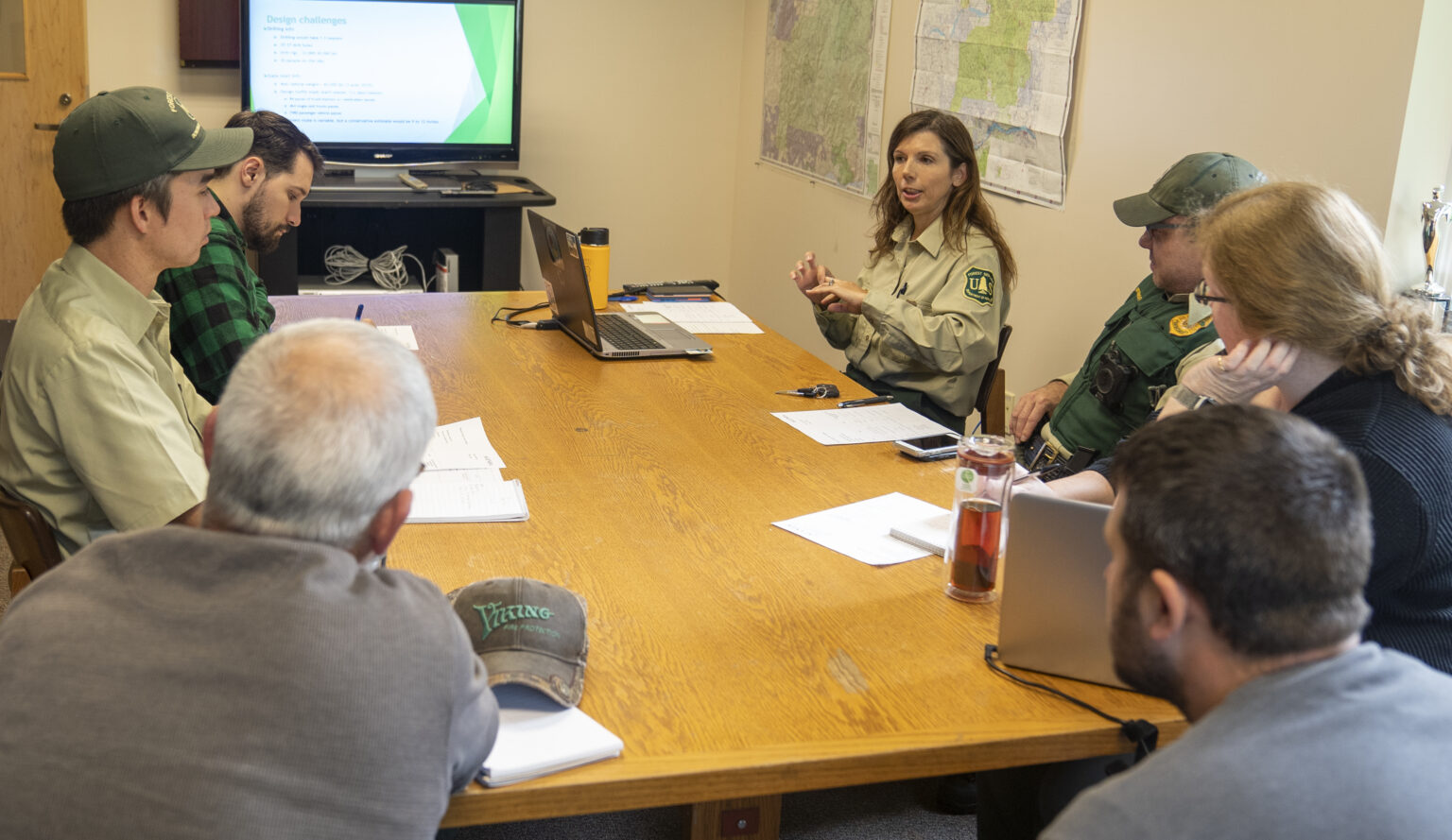Capital Chatter: Negotiations over federal officers in Portland may affect Brown’s political stock
Published 5:30 pm Thursday, July 30, 2020

- Capital Chatter square logo
Gov. Kate Brown’s public stock may rise from her negotiations with Vice President Mike Pence and others in the Trump administration to have Oregon State Police guard the federal courthouse in downtown Portland, replacing federal officers. Politics, at any level, is the art of relationships. (Oregon Public Broadcasting provided a superb account of how deal that came about.)
Sen. Floyd Prozanski, D-Eugene, called on Chad Wolf, the acting head of the federal Department of Homeland Security to appear — remotely — before Oregon legislators to answer questions about the role of federal agents in handling the protests. Prozanski is a member of the Legislature’s Joint Committee on Transparent Policing and Use of Force Reform and chairs the Senate Judiciary Committee.
Trending
“I have watched with increasing alarm how federal agents under your command have recklessly violated the constitutional rights of Oregon citizens who have lawfully assembled around the federal courthouse in Portland to protest police brutality and support the Black Lives Matter movement,” Prozanski wrote in a letter to Wolf.
State Rep. Mike Nearman, R-Independence, called on President Donald Trump to close the Mark O. Hatfield Federal Courthouse and move its operations to Dallas, in rural Polk County. Rep. E. Werner Reschke, R-Klamath Falls, went farther — literally — suggesting that the federal courthouse move to Klamath Falls.
Neither will happen. But it would be intriguing if urban and rural Oregon swapped, so urbanites were the ones traveling long distances. “While this will certainly be inconvenient for many in Portland who have business at the courthouse, the City of Portland has demonstrated over the last two months that it is both unwilling and unable to provide even the most basic security for the facility,” Nearman said.
Tense mood: Oregonians’ mood is tense. Blame the pandemic. People feel isolated. They worry about their jobs and businesses and schools and families. They dread COVID-19.
But blame politics, too. Oregonians collectively are enduring their worst crisis in many decades. Yet most elected leaders have shown either an inability or an unwillingness to bury their differences. They say, “We’re all in this together.” They don’t show it.
To this day, Democratic legislators continually blame the Republican walkouts for the collapse of the 2019 and 2020 legislative sessions. Republicans say Democrats’ condescension and refusal to negotiate in good faith forced them to walk out.
Trending
During a video conference of the Oregon Leadership Summit this week, the government affairs director for the regional food processors association said he never had seen Oregon more divided.
“The conversation is horrible and the division is deep,” said Craig Smith of Food Northwest. He is a lifelong Oregonian who has lived on both sides of the Cascades.
“We’re not in a good place right now. That is very clear. We’ve had two legislative sessions that could not complete. That’s been tragic for this state,” he said. “This state has to figure out how to heal its political process.”
A state discouraged: Oregonians are increasingly discouraged about the future of our state. A mere 33% believe Oregon is headed in the right direction, a drop of 18 points since April. The negativity is felt statewide but runs deepest in the Willamette Valley.
This accurate-but-disheartening picture arises from the latest statewide opinion survey by DHM Research. The Portland-based firm and the Oregon Values and Beliefs Center conducted the online survey of 603 Oregon adults during July 14-22.
The last time that DHM found such a steep drop in optimism? The months following the 9/11 attacks.
The survey data do raise questions about whether Gov. Brown, Senate President Peter Courtney, House Speaker Tina Kotek and other elected officials are in tune with Oregonians’ concerns. On the other hand, the public lacks consensus on what our elected leaders should tackle as the No. 1 community problem.
Responding to an open-ended survey question, 22% of participants named COVID-19, including its spread, control and community compliance, as their top issue. Fourteen percent cited racial injustice and police brutality, including defunding/reforming law enforcement; 13%, homelessness and affordable housing; 11%, law and order, rioting and property destruction; and 7%, jobs and economic improvement.
Meanwhile, “climate change and the environment” came in seventh on the list, with 5% of respondents citing it as their top concern. This is in tune with previous surveys. Overall, Oregonians care about climate change, but it’s not their top issue.
One could draw the reasonable conclusion that the Legislature and governor’s focus on climate change is highly important to Democratic stalwarts but Oregonians as a whole don’t see it that way.
Neither do Oregonians agree with a current priority of many Republican officials: reopening the economy, curbing government controls and preserving freedoms in the face of COVID-19. This ranked ninth among Oregonians’ concerns, with 4% of respondents calling it the most important community issue.
On police issues, Brown and the Legislature appear more in sync with the general. The survey showed widespread support for a variety of law enforcement reforms, even though a majority of Oregonians — with little difference by race — believe their local police are doing a good job. In contrast, 55% percent of Oregonians disapprove of the job performance of police nationally, which is a higher percentage than seen in nationwide polling of Americans.
Sixty-six percent of Oregonians now support the Black Lives Matter movement, up from 54% two years ago.




